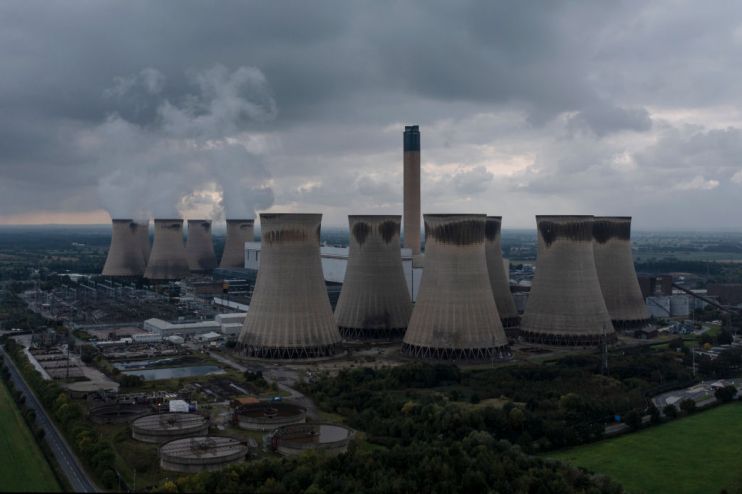Government considers extending life of EDF coal power plant

The government is mulling over the possibility of extending the operation of domestic coal-fired power stations that were due to begin closing in September.
Following Russia’s invasion of Ukraine, the UK is looking to shore up its domestic energy supplies over the winter.
City A.M. understands the government has held conversations with EDF about keeping open its coal power station in West Burton open beyond current plans.
However, discussions over the suspending the closure of the West Burton A coal power plant remain in early stages.
An EDF spokesman told the newspaper the processes for closing its West Burton A coal power plant have already begun.
He said: “The plan is to start decommissioning the final two units at the start of October 2022, and many processes have already been put in place to achieve that, including reducing the site’s staffing numbers and running down the coal stock.”
While Downing Street is currently committed to ending the use of coal power stations by 2024, Prime Minister Boris Johnson set to unveil the country’s energy strategy over the coming days which could see a reprieve for fossil fuels.
When approached for comment, a BEIS spokesperson said: We will be setting out plans to boost our long-term energy resilience and domestic supply shortly. The operation of UK coal plants is ultimately a commercial matter and we have made no formal request to EDF.”
Currently, the UK has three remaining operational coal plants, with the sites in West Burton and Draz annoucning plans to begin shutting down in September 2022.
Keeping the West Burton plant open could marginally reduce the UK’s natural gas needs for next winter – with the government desperate to ease the escalating cost of living crisis.
Following Russia’s invasion of Ukraine and record wholesale prices – which peaked at an eye-watering £8 per therm – there have been reports from analysts at Investec and Goldman Sachs that the price cap could rise to £3,000 per year in October for domestic energy users.
This has motivated the UK to look for alternative energy sources to Russian gas – which makes up four per cent of its gas needs – and to reduce its overall wholesale dependency.
Prime Minister Boris Johnson will push Saudi Arabia to produce more oil in an expected visit to the country later this week, while Business Secretary Kwasi Kwarteng has committed both to ramping renewables and to plans to boost exploration for North Sea oil and gas.
This story was first reported by The Times.